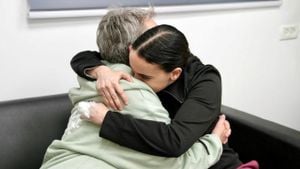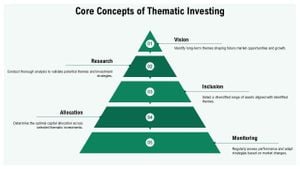The upcoming presidential election on January 26, 2025, is set against the backdrop of deep political repression and widespread allegations of electoral fraud. Incumbent President Alexander Lukashenko, who has maintained power since 1994, is expected to secure his seventh term during this election, which political analysts are already dubbing another exercise in pseudo-democracy.
The stakes are elevated due to the political climate following the contentious 2020 elections, where Lukashenko claimed over 80% of the votes amid accusations of flagrant fraud. This sparked massive protests and brutal crackdowns, resulting in thousands being arrested and significant opposition figures fleeing the country or being jailed. Today, most political opponents are either imprisoned or living abroad—an environment where dissent is met with severe repercussions.
On the surface, voters are presented with five candidates, but all are loyal to Lukashenko, raising questions about the legitimacy of the electoral process. Svetlana Tikhanovskaya, the leader of the exiled opposition, condemned the upcoming elections as nothing short of farcical. "Today’s events in Belarus are a farce," she stated from Warsaw, emphasizing the lack of genuine competition and calling for the liberation of political prisoners.
Polling will occur with no international observers, and the voting population of around seven million typically faces intimidation. European Union spokesperson Anitta Hipper labeled the political situation as "a total farce" and lamented the predictable outcome, stating, "It is not genuine elections when you already know who will win." The EU, alongside the US and the UK, has consistently refused to recognize Lukashenko’s presidency.
The run-up to the election has seen measures intended to assure Lukashenko's control. Analysts suggest the timing of the elections during the frigid January is no accident, as it could significantly deter potential protests. Valery Karbalevich, a political expert, remarked, "There won’t be mass protests during the cold month of January." This strategy appears to be part of Lukashenko’s broader effort to consolidate authority as he unexpectedly advances the election date.
Svetlana Tikhanovskaya also warned of potential voter coercion, advising citizens to mark their ballots against all candidates as a form of protest. "Lukashenko will focus on participation, but no one will count the votes; everything is false," she remarked, stressing the need for awareness among voters.
Since 2020, repression against dissent has intensified, with rights organizations estimating around 1,300 political prisoners currently detained within Belarus's borders. Reports of torture and mistreatment within prisons have surfaced, creating a climate of fear among the populace. International bodies continue to express grave concerns about human rights violations under Lukashenko's regime. The EU, responding to these oppressive tactics, stated, "We continue to support the Belarusian people. We continue to pressure the regime," reflecting recognition of the struggles faced by those opposing the autocrat.
Simultaneous to the internal repression, Belarusian alignment with Russia has deepened. Lukashenko's governance relies heavily on support from the Kremlin, especially since the onset of the war between Russia and Ukraine. Since allowing Russian troops to utilize Belarusian territory for invasion purposes, the nation's geopolitical stance has become increasingly precarious. This complicity has led to suggestions from the European Parliament, which called to reject the upcoming elections as merely performative, echoing sentiments about Lukashenko's reliance on Moscow.
Belarus's historical ties to Russia complicate its political future as Lukashenko's administration continues to assert its authority within the framework of Union State agreements with Moscow. The broader international community remains skeptical, viewing the election not as a pathway to democracy but as another chapter in the story of authoritarian rule.
Critics argue Lukashenko employs archaic Soviet-style tactics to suppress dissent and maintain his grip, including controlling the media narrative and undermining any signs of civil society. The pervasive atmosphere of fear, exacerbated by the closure of independent media outlets and NGOs, creates significant challenges for any opposition efforts benefitting from broad public support seen during the 2020 elections.
While this election stands to reinforce Lukashenko’s power, the specter of discontent looms large among the populace, many of whom are yearning for change. The opposition, increasingly fragmented yet still vocal, embodies this hope. National sentiment remains intertwined with aspirations for rights and freedoms, leading many to believe the eventual autumn of Lukashenko's regime is inevitable, as voiced by Tikhanovskaya, "The time of Lukashenko will come."
The dynamics surrounding the January 2025 elections will undoubtedly serve as both a reflection of Lukashenko’s iron-fisted rule and as a catalyst for potential change. With the world watching, the outcomes could have significant ramifications not only for Belarus but for Eastern European geopolitics altogether.



